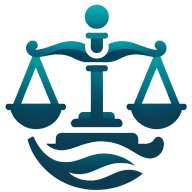4 Legal Issues Impacting the Education Sector and Why They Matter
The education sector is facing a complex array of legal challenges that are reshaping the landscape of learning. From classroom content restrictions in Florida to data privacy concerns in digital learning environments, these issues are having far-reaching impacts on students, educators, and institutions alike. Drawing on insights from experts in the field, this article explores four key legal matters currently affecting education and examines why they are of critical importance.
- Florida's Classroom Content Restrictions Impact Education
- Data Privacy Concerns in Digital Learning
- Tech Giants' Access to Student Data
- Title IX Shapes Educational Equity Landscape
Florida's Classroom Content Restrictions Impact Education
One legal issue in Florida that is particularly relevant to the education sector is the regulation of classroom instruction related to race, gender, and identity, especially under laws like the "Stop W.O.K.E. Act" (HB 7) and related legislative efforts.
Why It's Relevant:
These laws limit how teachers can address topics such as systemic racism, privilege, gender identity, and U.S. history in ways that might cause a student to "feel guilt" or "discomfort" based on their race or sex. The legislation has impacted K-12 education, as well as public colleges and universities.
Impact on Students:
Reduced Exposure to Diverse Perspectives: Students may receive a limited or skewed understanding of history and social issues, which can hinder critical thinking and cultural awareness. Students from marginalized groups may feel their identities and experiences are not welcomed or recognized in the classroom.
Impact on Educators:
Uncertainty and Fear of Penalties: Teachers may self-censor or avoid complex but important topics for fear of violating vague or broad regulations.
Professional Autonomy: Educators may feel their professional judgment and academic freedom are undermined.
Impact on Institutions:
Curriculum Changes: Schools and districts may revise or remove certain materials, leading to a narrower curriculum.
Legal Challenges: Districts and universities may face lawsuits, audits, or funding risks if they're seen as non-compliant.
Staff Retention & Morale: The tension around these laws can impact teacher morale and make recruitment and retention harder in an already stressed workforce.
Final Thought:
While the intent of the law is framed around parental rights and neutrality, the broader impact may be a less inclusive and open educational environment. It's a legal issue that brings deep implications for academic freedom, student identity development, and the mission of education itself.

Data Privacy Concerns in Digital Learning
One legal issue increasingly relevant to the education sector is data privacy and protection, especially with the widespread adoption of online learning platforms and AI-driven educational tools. As schools and universities collect more student data--from biometric identifiers to behavioral patterns--there's growing concern over how this information is stored, used, and shared.
This issue affects students by putting their personal information at risk, particularly minors who may not fully grasp the long-term consequences. Educators face pressure to adopt technology without clear guidance on compliance, while institutions risk legal liability if privacy frameworks--such as the GDPR or local equivalents--are not properly enforced.
The need for clear, sector-specific data governance rules is critical. Educational institutions should implement robust policies on consent, transparency, and data minimization. Failing to do so can erode trust in digital learning and invite significant legal consequences.

Tech Giants' Access to Student Data
One legal issue that keeps coming up in education is how much access big tech companies have to student data, and most people don't even realize it.
Schools are using more online tools than ever, from learning platforms to testing apps. However, many of these tools are run by large corporations, and the fine print in those contracts isn't always clear. Sometimes, schools are handing over student data without fully understanding how it will be used or with whom it will be shared.
This puts students at risk and places schools in a difficult position. Educators want to do what's best for their classrooms, but they're not privacy lawyers. When things go wrong, such as a data breach or unauthorized tracking, it's the students and their families who bear the consequences.
As technology continues to grow in education, we need to ask tougher questions about who's collecting student data and why. Schools need more transparency, better contracts, and tools that protect students.

Title IX Shapes Educational Equity Landscape
One significant legal issue in the education sector is the application and implications of Title IX, a federal law that prohibits sex-based discrimination in any school or any other education program that receives funding from the federal government. This law has transformed educational environments in numerous ways, aiming to ensure that all students, regardless of gender, have equal access and opportunities in education. Title IX affects everything from admissions and financial aid to athletics and sexual harassment policies.
The impact of Title IX on students and educators has been profound. It guarantees equal playing opportunities for female athletes, provides protections against sexual harassment, and demands that schools take action to prevent discrimination. However, the regulations and guidelines for implementing Title IX can be complex, leading to challenges for institutions in ensuring compliance without compromising their educational missions. Institutions must carefully navigate these requirements, often requiring legal counsel to avoid potential lawsuits and ensure policies are both fair and effective. The evolving interpretation of Title IX demonstrates the dynamic nature of legal issues in education, requiring continuous attention and adaptation by educators and administrators alike. As this law further evolves, it will continue to shape the landscape of educational equity and safety.


